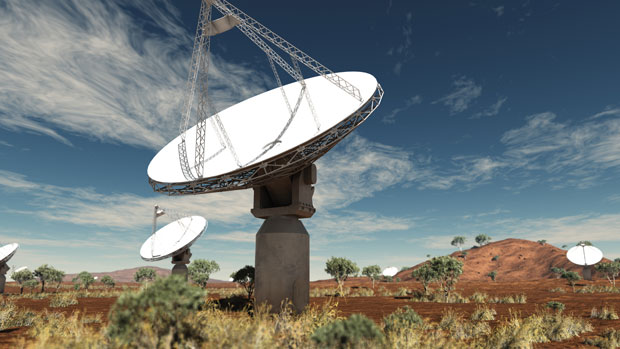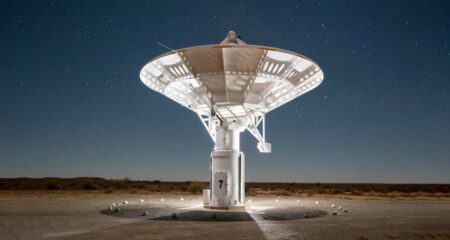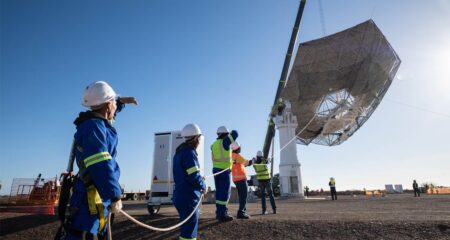
IBM has partnered with the Netherlands Institute for Radio Astronomy (Astron) to develop high-speed but low-powered “exascale” computers that will meet the enormous demands of the Square Kilometre Array (SKA) radio telescope.
The four-year deal will lead to the development of computer systems capable of handling the enormous amounts of data the SKA will produce, along with algorithms to help deal with it. It’s estimated that the SKA’s dishes will collect 10 times the global traffic of the Internet in data, and its central computer will have the processing power of a hundred million PCs. An exascale computer is one capable of handling more than a quintillion processing instructions per second.
Current computer systems do not offer the power required to process the quantities of data the SKA will collect. In order to try to deal with this challenge, Astron and IBM last year launched a public-private partnership called Dome — named after the protective covers for telescopes and the Swiss mountain, Dom.
Dome includes a wide range of organisations investigating emerging technologies such as high-performance and energy-efficient computing, nanophotonics (how light behaves at the nanometre scale) and data streaming. In addition to the SKA project, it’s hoped some of Dome’s findings will be able to assist in other data projects such as climate change and genetics research.
According to IBM, the benefits of the research will be felt well beyond the confines of the SKA and should usher in what it calls the “era of cognitive systems”. IBM envisions computer systems that can learn from existing data and adapt their algorithms to better contend with new data.
IBM has been working on cognitive computing for some years. Its most successful project to date is a computer called Watson, which was able to beat the best human contestants on the US game show, Jeopardy. Watson represents one of the great strides in cognitive computing as it was able to interpret existing data it had while also adapting to other players’ techniques.
John Kelly, director of IBM Research, was in South Africa recently to talk about cognitive computing, which he argues is the next evolution from programmed computing and a necessity in the face of the ever rising volume of data.
Kelly says that eventually cognitive computing should be able to predict, interact and learn. This not only has applications for industries like health care, where it can be used for diagnosis, but in the case of the SKA it will mean systems that can most efficiently sort, store and process the data the project will produce.
“I believe that the SKA represents the ultimate big-data challenge and that the technology we develop for handing its data will provide a foundation for the next era of computing,” Kelly says.
Scientists from SKA South Africa will focus on signal processing and computer algorithms for the capture, processing and analysis of the SKA data in order to create clear images for astronomers to study.
The South African team will also be looking into researching and prototyping micro-server architectures based on liquid-cooled 3D stacked chips that can also withstand the desert conditions of the Karoo where the lion’s share of the SKA will be situated.
MeerKAT, the 64-dish telescope that will act as a precursor to the SKA, will also allow South African scientists to pilot the sorts of systems IBM and Astron are working on.
Construction of the SKA is scheduled to begin in 2017 and conclude in 2024. — (c) 2013 NewsCentral Media




